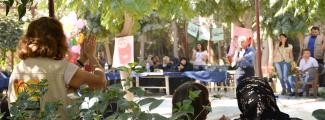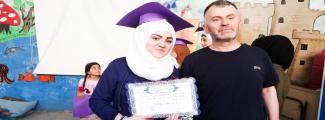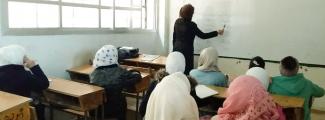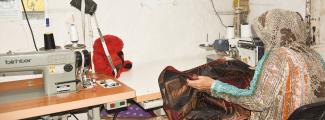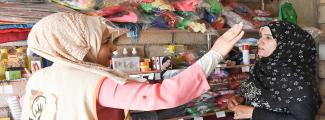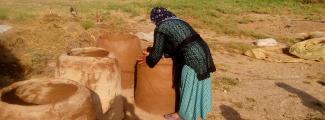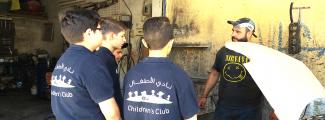While attending an early marriage campaign organized by SSSD, Mrs. Alan asked for counseling services and was referred to the case manager.
The young woman met the case manager last year when she was 17 years old.
Back then, she suffered from poor mental health and seemed desperate. She mainly complained about being forced into marriage at an early age (15 years old) where she lived abroad, and as a result she was denied of her right to education.
Her parents had forced her into marriage out of the fear of being a spinster and following the traditions and customs of her community that forces girls into marriage at an early age.
Session after session, the woman talked about her husband's abuse, physical and verbal violence, up until one day he sent her to Syria to visit her family for one month, and on her way back to Lebanon, she found out that he ended her stay permit.
Upon reaching out to him, he told her he did not want her in his life and that he was looking for a new life partner.
The young woman was traumatized and suffered from depression and lack of self-confidence. Simultaneously, her husband refused to divorce her to avoid his financial obligations toward her, and her father prohibited her from leaving home.
The case manager worked with the young woman for months up until she was able to prioritize her life goals. The first step of her healing process involved supporting her self- confidence and reducing her self-blame. Next, she was convinced to go back to school, changing her belief from "a divorced woman cannot resume studying" into a new belief "with desire and strong will people can resume studying".
Her parent's first reaction was negative; they refused the idea, worried about the financial burden and based on their belief that a woman's central role in life is being a wife. Later on, the case manager conducted several sessions with her mother to talk her into supporting her daughter's decision in enrolling in the free educational program offered in the centre and an agreement was reached to accompany her daughter to classes, since her father had refused allowing her to step out of home on her own.
Eventually, the young woman was referred and enrolled in the educational program.
During the early sessions, the woman sat alone and never participated in class nor spoke to anyone. Upon talking to her mother, the mother confirmed that her daughter preferred to sit alone at home, even at the lunch table, she also talked about her hurtful behavior toward her family members, based on that, the young woman was referred to the psychologist.
The young woman regularly attended the psychotherapy sessions.
For months, she was encouraged to get involved in many campaigns and activities organized in the centre. She gradually participated and showed drastic favorable reactions, she quit crying and let go of her sadness, and she was able to communicate with ease and developed many friendships. Currently, she is preparing to sit for the ninth grade national exam and she is very optimistic.
After some time has passed, her mother thanked the team for her daughter's change, saying that her relationship with her and her siblings improved and carried on that the young woman opened up her heart for sharing every day details with her and she quit being mysterious.
During the sessions, the woman kept communicating with her husband to avoid divorce and the social stigma of being a divorced woman.
However, the husband kept rejecting her and during their last phone call, he verbally divorced her. With the husband's refusal to document the divorce, the young woman and her parents decided to file for divorce.
She seemed hopeful that divorce would give her the chance to start a new life.
Indeed seeing the young woman's drastic change is rewarding and what is really delightful is sharing her words, "I am no longer a withered flower. I blossomed and regained my beautiful color. I see the beauty of life and I understand that life never ends when someone leaves. I am in control of so many delightful aspects of life, especially, going back to school, I am rebuilding my self-fulfillment. I am strong with everything you have offered in this center- strong enough to embrace life”.

